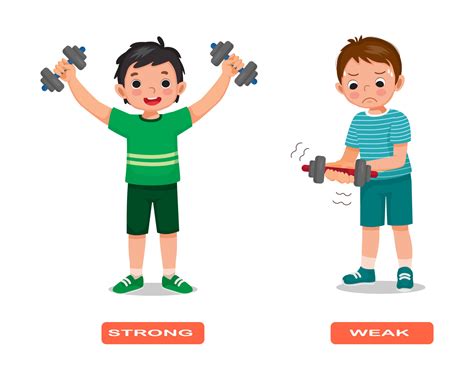Navigating the Storm: Building Resilience in Men After Setbacks
Life is an unpredictable journey, and for men, setbacks in areas like fitness and finance can strike particularly hard, often challenging perceptions of strength, capability, and identity. Whether it’s a debilitating injury derailing a fitness regimen or an unexpected financial downturn impacting security, these experiences can be profoundly disheartening. The ability to bounce back, adapt, and grow from these challenges isn’t inherent; it’s a skill—resilience—that can be learned and strengthened. This article explores practical strategies for men to cultivate this vital trait and emerge stronger from fitness and financial adversities.

The Distinct Impact of Fitness and Finance Setbacks
For many men, physical prowess and financial stability are deeply intertwined with self-worth and societal expectations. A sudden injury can strip away not just physical ability but also a sense of control and accomplishment, especially for those who define themselves by their athletic pursuits. Similarly, financial instability can trigger feelings of failure, shame, and anxiety, impacting not only personal well-being but also the ability to provide for oneself or family.
Recognizing the emotional and psychological weight of these setbacks is the first step towards recovery. It’s not just about the physical or monetary loss, but the blow to one’s self-image and future aspirations. Allowing space for these feelings, rather than suppressing them, is crucial for healthy processing.
Strategies for Rebuilding After Fitness Setbacks
Acknowledge and Grieve the Loss
Whether it’s a sports injury or a prolonged illness, it’s okay to feel disappointed, frustrated, or even angry about the interruption to your fitness journey. Give yourself permission to mourn the loss of your previous physical state or routine. This acceptance is vital before you can move forward.
Reframe Goals and Focus on Progress, Not Perfection
Once you’ve acknowledged the setback, adjust your expectations. Instead of aiming for your pre-setback peak immediately, focus on small, achievable milestones. Celebrate minor victories, like attending a rehabilitation session, walking a little further, or lifting a slightly heavier weight. This incremental progress builds momentum and confidence.
Seek Professional Guidance and Build a Support System
Working with physiotherapists, doctors, or specialized trainers is essential for a safe and effective recovery. Beyond medical professionals, lean on friends, family, or a workout buddy. Sharing your struggles and celebrating your progress with others can provide invaluable emotional support and accountability.

Strategies for Rebounding After Financial Setbacks
Confront the Reality, Avoid Shame
Financial setbacks, from job loss to market downturns, can be incredibly stressful and isolating. It’s easy to fall into a spiral of shame or self-blame. Instead, confront the reality of your situation honestly, without judgment. Analyze the damage objectively to understand the scope of what needs to be done.
Develop a Concrete Recovery Plan
Once you understand your situation, create a detailed action plan. This might involve budgeting, cutting unnecessary expenses, exploring new income streams, or seeking debt consolidation advice. A clear plan provides a roadmap and a sense of control, reducing anxiety.
Consult Financial Experts and Utilize Resources
Don’t hesitate to seek advice from financial advisors, credit counselors, or career coaches. Many organizations offer free or low-cost resources for financial planning and job searching. Leveraging expert knowledge can help you make informed decisions and accelerate your recovery.

Universal Principles for Building Lasting Resilience
Cultivate a Growth Mindset
View setbacks not as definitive failures, but as opportunities for learning and growth. A growth mindset encourages you to see challenges as temporary and solvable, fostering a belief in your ability to improve and adapt. Ask yourself: “What can I learn from this?” and “How can this experience make me stronger?”
Practice Self-Compassion and Mindfulness
Be kind to yourself during challenging times. Self-compassion involves treating yourself with the same understanding and care you would offer a good friend. Mindfulness practices, such as meditation or deep breathing, can help manage stress, reduce rumination, and keep you grounded in the present moment.
Strengthen Your Support Network
Isolation can amplify the pain of setbacks. Actively cultivate and lean on a strong support network of friends, family, or mentors. Sharing your experiences, listening to others, and participating in community activities can provide perspective, encouragement, and a sense of belonging.

Embrace Proactive Problem-Solving
Instead of dwelling on what went wrong, shift your energy to identifying solutions. Break down large problems into smaller, manageable steps. This proactive approach not only helps resolve the immediate issue but also builds confidence in your ability to tackle future challenges.

Conclusion
Building resilience after fitness or financial setbacks is a profound journey of self-discovery and strength. It’s about acknowledging the pain, learning from the experience, and strategically rebuilding, brick by brick. By embracing a growth mindset, seeking appropriate support, and taking proactive steps, men can not only recover from these challenging moments but also forge a deeper sense of inner fortitude that will serve them well in all aspects of life. Resilience isn’t about avoiding the storm; it’s about learning to sail through it and emerging a more capable mariner.




